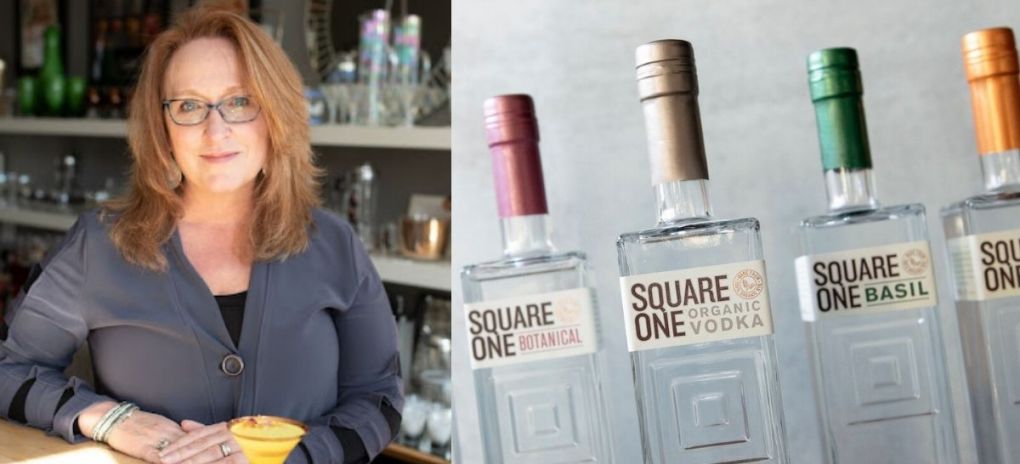
12/09/2022 Founder and ‘Chief Everything Officer’, Allison Evanow shares her story behind Square One Organic Spirits, a Female-Owned Boutique Organic Spirits Company.
A cocktail lover and innovative marketer, Allison Evanow has been a veteran of the beverage industry and boasts of an experience of 30+ years. She completed her higher education in Marketing and went on to work for renowned beverage companies like PepsiCo, Jose Cuervo, Domaine Chandon, and Patz & Hall Wine Company. She has literally been a master of all trades and holds great knowledge in launching new products and driving growth. In 2004, Allison went on a mission to produce her own vodka with the farm-to-bottle philosophy and started the brand Square One Organic Spirits. With an eco-conscious mindset, she has launched 5 OrganicVodkas, 5 Organic Mixers, and 4 Sparkling Cocktail Mixers in her brand. She is indeed a trailblazer in the spirits industry and has changed the face of organic spirits.
[[relatedPurchasesItems-31]]
Can you tell us about yourself and what led you to join the Spirits industry?
After graduating from college, I went to work in Spain for several years in different international positions before going back to school to get my International MBA. After getting my MBA, I started my marketing career in the international CPG space, working for PepsiCo Foods International in Mexico. Several years later I was recruited to go work for the Beckmann family’s International Division of Jose Cuervo, which was when I entered the spirits industry. It was an incredible experience as I learned about the heritage of the brand from over 200 years in the family and their interest in developing high-quality tequilas, not just their mainstream tequilas that are known globally. That was when I really got bitten by the product development bug and the different taste profiles of spirits and how they impacted the flavor of the cocktail.
I really enjoy the creativity of the spirits industry as I loved working with the distillers on developing new spirits profiles and learning from bartenders about making different cocktail profiles, just as a chef would, but at the bar. I dug into learning about the provenance of spirits, their terroir, varied distillation techniques, and other specific factors that made each spirit unique. After that experience and later at a stint as the head of marketing at a winery in Napa Valley, I knew that provenance was going to become a really important trend in the spirits space, and not just in categories like tequila or Scotch with official designations of origin, but in all spirits.
Tell us about Square One Organic Spirits and what led to the development of this company?
After spending several years in spirits and later in wine, and as somebody who participated in and closely followed the organic and sustainable food movement, I realized one day that a lot of spirits were still made with a lot of chemical or synthetic additives and fake flavors. With the world moving towards more transparency in their ingredients in food, I thought it was time to do the same in spirits, particularly in the vodka category which at the time was still focused on the cake, candy, and other synthetically created flavor profiles. I knew that simply using plant-based botanicals wasn’t enough and that we had to go the extra mile to use organic grains, botanicals, and processing methods to really show that a higher quality could be achieved naturally, instead of relying on a science lab for chemically-derived flavors.
Being the CEO of Square One Organic Spirits, what does your day look like?
I often joke that my title of CEO really just means “Chief Everything Officer” because as the founder of a boutique-sized company, we don’t have a large staff. I often have to take on all levels of tasks, including packing up last-minute samples and making FedEx drop-offs if it’s after hours and my team has gone home or if I want to personalize the package with a hand-written note. But the largest part of my day is spent focusing on some sort of sales function, whether I am working with my distributors and their sales teams or doing new business development myself with potential buyers at restaurants and retail chains. I also love to take time out every few months to come up with new cocktail recipes for our spirits to share with our bar customers and consumers at home who want to make more sophisticated cocktails than just a highball. I love being involved in all of the creative aspects of the business both on the brand side and the product and recipe development side too.
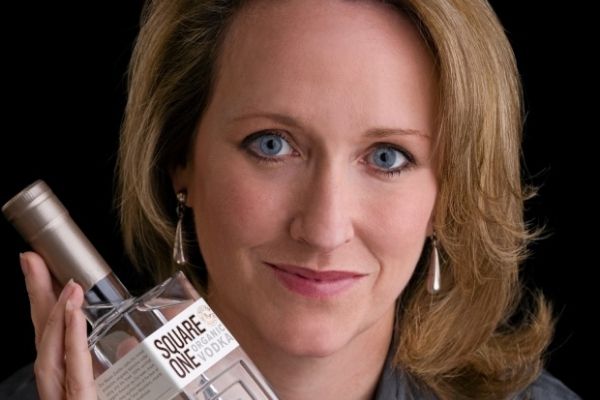
Allison Evanow, CEO and Founder of Square One Organic Spirits Image Source - Linkedin
When you mention Organic Spirits, what do those exactly mean? Does it also include organic practices in terms of sourcing materials, trade, etc.?
The name for the brand, “Square One” was derived from the concept of “starting at square one”, meaning that if you start at square one, you are making an effort to do it right.
We aren’t going back to square one because we messed something up, rather we are consciously starting at square one and really focusing on doing everything right from the start. From the very moment I got the idea for the company, I knew I would brand it as “square one” because of this concept. And I knew that in order to do it right, it has to be as clean and natural and transparent as possible, which was when I also realized that all of our products had to be organic.
In order to claim “organic” in the United States, you must have some level of certification and the paperwork on the ingredients to back it up. We source exclusively 100% organic rye as our base grain material and our botanical essences are all either certified organic or natural and allowed to be used in a certified organic product. This means that our ingredients have all been farmed and processed without chemicals, pesticides, and non-natural processing aids. But we go beyond the ingredients in other ways to operate a more sustainable business. Our distillery partners use 30% of their total energy from wind power and are one of the largest customers of Rocky Mountain Power, with a wind farm just a few miles from the distillery. We also make as many eco-conscious choices as we can in our packaging and our marketing materials. Sometimes a more eco-friendly choice is not viable yet, but we are always asking our suppliers to help us make more sustainable choices as more environmentally friendly options come to market. We often say that we try to go “beyond organic” by incorporating conscious, greener materials into our business.
What was the idea behind the Organic Vodka? Can you share the story behind developing this product?
For our straight vodka, I wanted to create a vodka that had a lot of flavors, even in a neutral spirit, and to combine the old world style of vodka with organic processing techniques which use natural fermentation aids and no charcoal filtration; and certainly, none of the secret additives, often used by large vodka producers such as glycerol, citric acid or hidden sugars.
The vast majority of American-made vodkas are made from corn, with a few from wheat or potato or less common ingredients, but very, very few use Rye. If you go back to the origins of vodka in Russia and Poland, rye was one of the first grains to be used in vodka distillation but it is harder to produce efficiently due to its lower starch content than grains like corn or wheat. A lot of producers abandoned rye in order to lower their prices or increase their margins by getting a higher yield, but I wanted to offer a more flavorful spirit with roots in the old world vodkas made hundreds of years ago, and so I chose to work with 100% Rye.
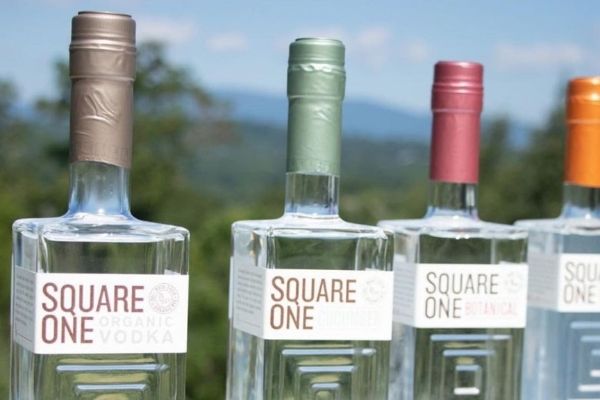
Square One Organic Vodkas by Square One Organic Spirits; Image Source - Square one organic spirits on Instagram
For our botanical vodkas, in addition to using the rye as our base, I wanted to layer in multiple botanical flavor profiles to our spirits to bring a much more sophisticated flavor impact from the spirit than what was in the market at the time, which was one-note flavored vodkas. So while our Cucumber vodka (the first introduced in the market in early 2008) was a straightforward expression of a single botanical, all of our subsequent developments involved multiple botanicals in the spirit. Our Square One Botanical, Basil, and Bergamot vodkas all have between 7 and 8 botanicals each, much like you would find in a gin or aquavit, but without the botanical that pushes it into those categories, such as juniper being required for gin. I didn’t want to be constrained by rules or definitions of what had to be in the product so we just call them botanical spirits or botanical vodkas.
When I am developing a new spirit flavor profile, I always think first about how I would want to use it in a cocktail and what other ingredients it would pair well within a cocktail. This is very much like how a chef would develop a new recipe. Our Botanical spirit is very floral and goes beautifully with white vermouths and bitter aperitifs, wine-based modifiers, and fresh seasonal fruits.
Our Basil vodka is bold and herbaceous and pairs well with spicy or earthy flavor profiles, including split-based cocktails with tequila or mezcal. And our Bergamot vodka is more bitter and spicy than what you think of in a citrus vodka due to the heavy use of a variety of orange peels, not just Bergamot, and the addition of ginger as one of our botanicals. We even leave that one unfiltered so all of the citrus notes are left in the spirit from the oily peels, and the flavor profile changes from batch to batch based on the variations in the ingredients sourced at that time.
You came up with the idea of organic spirits in 2004, how do you think the organic culture in the alcohol industry has evolved with time?
When I first started Square One, the bartenders and consumers who were already actively consuming organic foods and beverages really understood what we were trying to do, which was about bringing higher quality and transparency in our production to a category that had suffered through a lot of smoke and mirror product development and marketing. But the general public was still quite skeptical, saying “well, it’s alcohol which is inherently not a “healthy” product, so why does organic matter?” They didn’t immediately understand that it was both about quality in the product and sustainability at the farm by not using pesticides, herbicides, and other chemicals in the farming of our ingredients. It has taken much longer than I had hoped for organics to develop in spirits, but I finally see that organic spirits are now mainstream and not just for the stereotyped “tree hugger”. Consumers now understand the full picture of why organic matters, yes, even in beverage alcohol.
How does market intelligence help in driving the business forward? Can you tell us more about it and how you focus on growing Square One in the future?
As a small company, we aren’t in a position to do significant market research studies, but we pore over industry trends and articles in the food and beverage space that have pointed to the consumer evolving into the “conscious consumer” that is our core target today. As a small company that does not have to satisfy the stock market with our performance, we have the luxury of being first to market in products that are ahead of their time and to slowly develop them as the consumer grows into the trends we start.
For example, when we launched our Square One Botanical spirit in 2009, it was one of the first, if not the first, “botanical vodkas” in the market. We styled it after gin, but we purposely left out not only the juniper but the heavier botanicals that make certain people shy away from gin. Instead, we used a more consumer-friendly variety of garden botanicals instead of roots and barks. But we had to work very hard to educate bartenders and especially consumers to understand it.
Today there are several brands that now have “botanical vodkas”, although I would still argue that they don’t push the envelope far enough to challenge the consumer to embrace a more sophisticated flavor profile by using more botanicals than just 2 or 3 mainstream flavor profiles.
What strategies do you use to gain distribution and increase volume sales of Square One spirits in the U.S.?
For most of our history, we focused very, very heavily on the bartending community. We knew that they understood that a lot of the vodka brands in the market were more about marketing than ingredient integrity and provenance. We were able to provide our distributor partners with a high-quality product in a very large category that was still highly differentiated and had a real story behind it which helped us gain traction without having to secure outside the capital. This allowed us to really curate our distributor partners and focus on quality account distribution, not just high volume, heavily discounted sales gains.
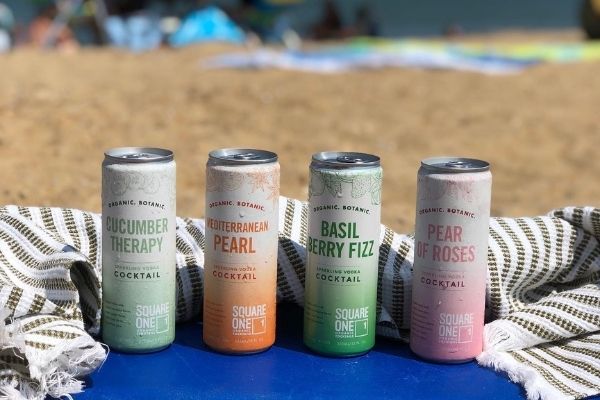
RTD Cocktails by Square One Organic Spirits; Image Source - Square one organic spirits on Instagram
In the last few years, we also saw the rapid growth of organics in food and beverage and we decided to move our portfolio into a broader offering. We now have a line of certified organic non-alcoholic cocktail mixers and craft RTD cocktails that will make the Square One brand more available at retail stores. Our cocktail mixers, for example, rely on a high juice content and lower sugar content than other brands on the shelf while having broad usage options instead of super esoteric flavor profiles. We want to give the consumer flavor from the actual fruit juice, not from a flavoring agent as most shelf-stable cocktail mixers have.
We are slowly pushing retailers into recognizing that consumers want convenient products like ready-to-pour cocktail mixers, but they still want better quality without high fructose corn syrup, added colors, fake flavors, and preservatives. And our RTDs are not just a simple flavored vodka soda, they were crafted from bar recipes but in a lighter style and a convenient “on the go” can format. We want organic to be able to be mainstream, not just for the diehard organic consumer, but we also want to promote a more sophisticated flavor experience.
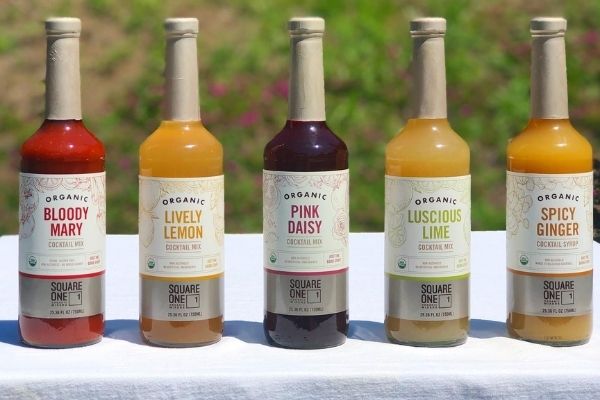
Cocktail Mixers by Square One Organic Spirits; Image Source - Square one organic spirits on Instagram
How do you approach social and digital media and how are you emerging from it?
We are working on a more extensive social and digital media strategy now that we have several product lines, so we expect our social and digital media marketing to evolve significantly in the next year or so. We currently focus heavily on the product itself because there is still so much education to be done to help the consumer understand why our products are better, how to use them in a cocktail and why they will pay a premium for them. As we begin investing in broader marketing programs, we hope to engage our consumers more directly in the brand experience as part of their cocktail-loving lifestyle.
What are some of the essential requirements to build a brand like Square One and bring it to such a big level?
It sounds really cliché, but focusing on quality and not deviating from our ethos of using only organic ingredients, employing sustainable practices in our business wherever possible, and being fully transparent with our audience has been the key to our success thus far. The vodka category has a tendency to attract people from outside the industry who want a “get rich quick scheme” because it is an easy product to buy from bulk brokers and just create a new label and bottle it. These people often come up with some product angle to try to be differentiated but in the end, it is just a gimmick. We make our own product for our main spirits line, we do not buy bulk alcohol made by a giant factory supplying hundreds of brands. We have not changed our base rye vodka production process in over 15 years and we don’t rely on gimmicky trends, I think our core customers at the bars, restaurants and retailers appreciate that and support us in our growth.
How did the change of tariffs affect your company? Also, what was the impact of the pandemic on your business and how did you tackle it?
A very small percentage of our sales are to the export market, so we did not suffer from any tariff impacts. As for the pandemic, we fared a lot better than most because we were already set up with e-commerce options and were able to capture sales from consumers shopping by click, not in the store. However, as a brand that was built in the on-premise, we certainly took a big hit on the spirits side of the business but fortunately, our newer retail-oriented products (the mixers and RTDs) helped us offset the loss of sales in that channel. We experienced some supply chain challenges in 2021 but we are ahead of it now and are really looking forward to renewed growth in 2022 and beyond.
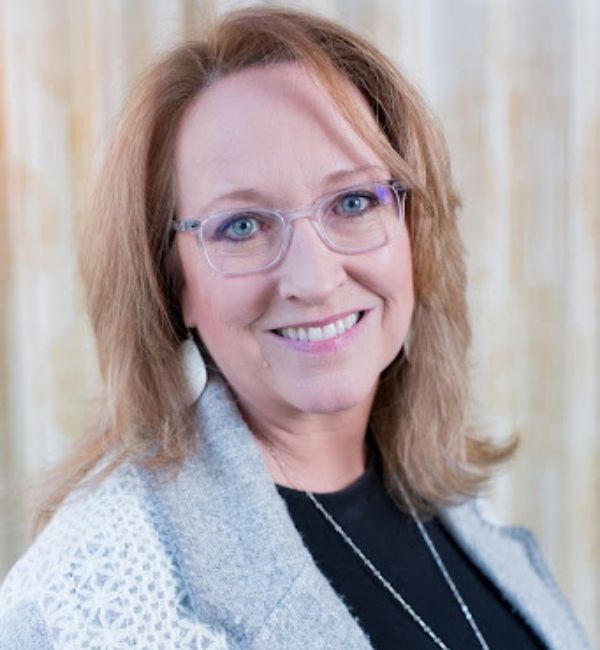
Being a woman in the spirits industry, what advice would you like to give to fellow women who are looking forward to joining the industry?
As one of the first women to start a spirits company without a male partner, and as a solo founder without several co-founders, it has been a pretty challenging road. My advice would be to any person looking to join our industry, not just women, to really surround yourself with people who know the industry well and to build your plan based as much on the commercial side of the business as the consumer side. I have seen too often people who develop really cool and interesting products that people love, but they don’t have the business plan to really get their products into the hands of the end buyer efficiently. At the end of the day, distribution (and cash!) is going to make or break your business, so my advice would be to not just focus on the product, but the route to market and the cost of how you are going to get there.
Specifically to women, I have found in my experience, that true to our nature, we like to help each other. While I probably won’t give out a lot of free advice to a woman trying to make a direct competitor product to mine, I have gone out of my way to try to help other women in our industry who are starting new brands in all spirits categories and I think when we all cooperate and collaborate, it lifts us all up. I am a Founding Member of the Women’s Cocktail Collective started by Nicola Nice, the Founder, and CEO of Pomp & Whimsy Gin Liqueur. We are now over 20 women-owned brands in the Collective and when we partner up and do events together and mix and match our spirits in cocktails together, we just have a blast and our consumers love it!
Finally. which is your Go-To Drink and what setting do you enjoy it in?
Although I started my company in Northern California, just outside San Francisco, we now live in central Virginia at the foot of the Blue Ridge Mountains. Our outdoor patio looks straight at the mountains of the Shenandoah National Park and the sun sets right behind the ridge in front of us. At the end of the day, we love to sit out on the patio and enjoy a cocktail while chatting about the day or the weekend activities and watch the colors change over the mountains with the sunset. My go-to drink leans vary seasonally so if it is summer, I’m generally pulling fresh herbs from my garden or muddling in some seasonal fruit and making a tall, refreshing, summery cocktail. If it is winter and we are sitting by the outdoor fire, I’ll lean on winter citrus with our Bergamot botanical vodka and pull in some warming ingredients like amaros, cognacs, spices, or red vermouths and go for a more spirit-forward sipper.
Interviewed by Shreya Kohli, Beverage Trade Network
2025 Registrations are now closed


